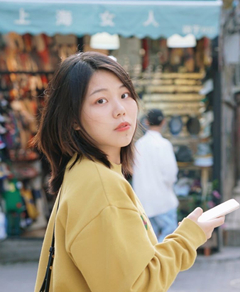|
||||||||||
| Home Nation World Business Opinion Lifestyle ChinAfrica Multimedia Columnists Documents Special Reports |
|
||||||||||
| Home Nation World Business Opinion Lifestyle ChinAfrica Multimedia Columnists Documents Special Reports |
| ChinAfrica |
| Double Take | The Value of Learning Art |
| The Double Take column looks at a single topic from an African and Chinese perspective. This month we discuss the benefits of mastering an art |
| CHINAFRICA 丨VOL. 14 September 2022 ·2022-09-13 |

Key to Unlocking Creativity
Mejury Chipato
A 30-year-old Zimbabwean doctor in Ganzhou, Jiangxi Province
Art such as paintings has been part of tradition all around the world. China is known for its paintings which have great cultural meaning and have been used as a way of recording Chinese history. In order to ensure that this rich background is not lost in this modern era of technology, it’s important to encourage learners to take keen interest in art.
Paintings are a form of silent communication; they convey emotions or deep-seated thoughts of a painter to the world. Hence paintings are a universal language across all cultures. It is also important not to forget the entertaining part of art such as playing a piano. Pianists are a vital component of music either as soloists or a part of a band. They add taste to music and also have a great career.
The value of learning art cannot be overemphasized. Art is key to unlocking our innate creativity as humans and allowing us to complement the logical and analytical aspect of our being with the creative and spontaneous expressiveness that abounds in art forms such as musical instruments and paintings.
As a doctor, I find it intriguing that the human brain is wired to accommodate both the logical and analytical side as well as the artistic and creative side. This helps me understand the value of art and the beauty of finding a synergy between logic and intuition.
Learning art is a useful tool, and one way to explore art is through learning how to play musical instruments like piano, flute, and harp, or engage in painting as an artistic pursuit. One of the beautiful things about art is that it offers relevance that goes far beyond the scope of the immediate learning experience.
Art, after all, is at worst an imitation of life and at best the pinnacle of our highest ideas and hopes translated into a tangible experience. The relevance of learning art is reflected in what it does for us and what we are subsequently empowered to do for others as a result of who we become via cultivating our inherent creativity.
We are all gifted in some way, shape or form. Learning art helps us explore our gifts and contribute to the world around us in an enduring way. Explore your gifts and see where the creative nature within will lead you.

Rewarding and Easy
Han Linfeng
A 27-year-old sales staff in Beijing
I started to learn guzheng when I was in primary school. And contrary to my plans, it lasted over seven years until I left home for another city to attend university. If you ask my opinion about acquiring an artistic skill like learning an instrument, the answer would be positive, as long as you have enthusiasm and patience.
I still remember how fascinated I was when I first saw the ancient Chinese plucked-string instrument. The wooden body and the s-shaped tail end look so graceful, while the 21 strings produce very diverse sounds.
If you are familiar with string instruments, you may know it is easier to learn an instrument with more strings than less. This is also true for guzheng. It has the most strings that you can pluck with 8 fingers (4 of each hand), and each string has a movable bridge that enables great flexibility for turnings. But unlike other instruments, guzheng is big. It’s hard to carry a guzheng around, together with the frame under the body, and practice whenever you want. Also, you need to take some time to wear finger picks before practice. Imagine how much patience you would need for daily practicing.
Despite all the trouble, I must admit that guzheng is the last thing I would like to give up in my life. The beautiful, natural sounds and the emotions it delivers – you will know what I’m talking about if you have seen a guzheng performance before. What makes guzheng unique to me is that you can be a band by yourself, rather than having to be part of one. Make a metallic tune with your right hand and create soft accompaniments at the same time with your left hand. I guess this is the moment when I feel the art.
| About Us | Contact Us | Advertise with Us | Subscribe |
| Copyright Beijing Review All rights reserved 京ICP备08005356号-5 京公网安备110102005860号 |